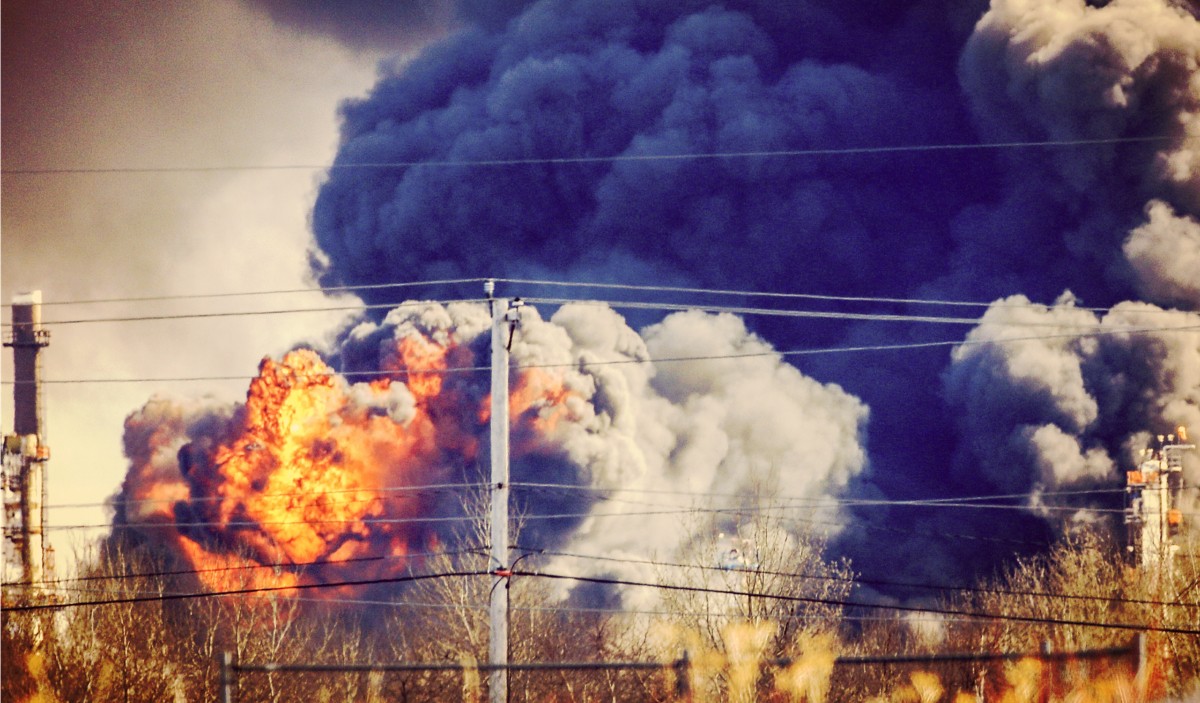Filed under: Audio Report, Civilization, Disaster, Environment, Interviews, Midwest, Radio/Podcast

Podcast: Play in new window | Download
Subscribe: RSS
In late April, a oil refinery in Wisconsin owned by Husky Energy close to Lake Superior caught fire, pumping oil into the earth and the nearby water supply, while smoke flooded into the air. In response, the government declared a state of emergency, issued evacuation orders, and even threatened those living in the immediate area with arrest if they did not leave.
Water protectors on the ground happened to be in the area and we spoke with one who was caught in the disaster zone and we talk with them about their experience of the initial explosion, their failed attempts to help with State disaster relief in the intimidate aftermath, and their thoughts on the connections between pipelines which are being resisted across the US, fossil fuel infrastructure, and continuous exposition and ‘accidents’ stemming from it.
The incident comes as Minnesota deliberates over the construction of the embattled Enbridge Line 3 project, which would run from Hardisty, Alberta, to Superior, Wisconsin. The Husky refinery already receives crude from Alberta and North Dakota via Enbridge pipelines, and it processes 50,000 barrels of oil each day.
This also isn’t the first time that the facility has erupted in near disaster. In 2015:
[P]ressure buildup in an empty 4,000 barrel asphalt storage tank, due to smouldering residual material, resulted in an explosion that burst a seam on the tank at the Superior refinery, then owned by Calumet Specialty Products. The residual asphalt material caught fire and created a plume of smoke that was visible from Duluth.
The city of Superior is no stranger to industrial explosions either. In 1992, a train containing benzene gas derailed south of the city, covering the region with a toxic plume and forcing the evacuation of nearly 30,000 people. The event became known as “Toxic Tuesday” among locals.
These explosions underscore the impact of the United Steelworkers (USW) betrayal of the 2015 oil refinery strikes. Five months after oil workers went on strike, the USW pushed through a sellout agreement that allows oil companies to strip away many safety provisions enacted after the 2005 BP explosion.
Despite the dangers of not only global warming, which is caused by oil production and combustion, the industry is also in the middle of an uptick of increased fossil fuel extraction, while at the same time there are fewer workers within the industry, coupled with reduced or slashed regulations. Such a system is ready to fall apart, and take many lives with it. While scary, our audio report offers a window into a situation many of us may soon be forced to live through.
More Info: Mutual Aid Disaster Relief and Trans, Two-Spirit, and Womyn’s Action Camp





